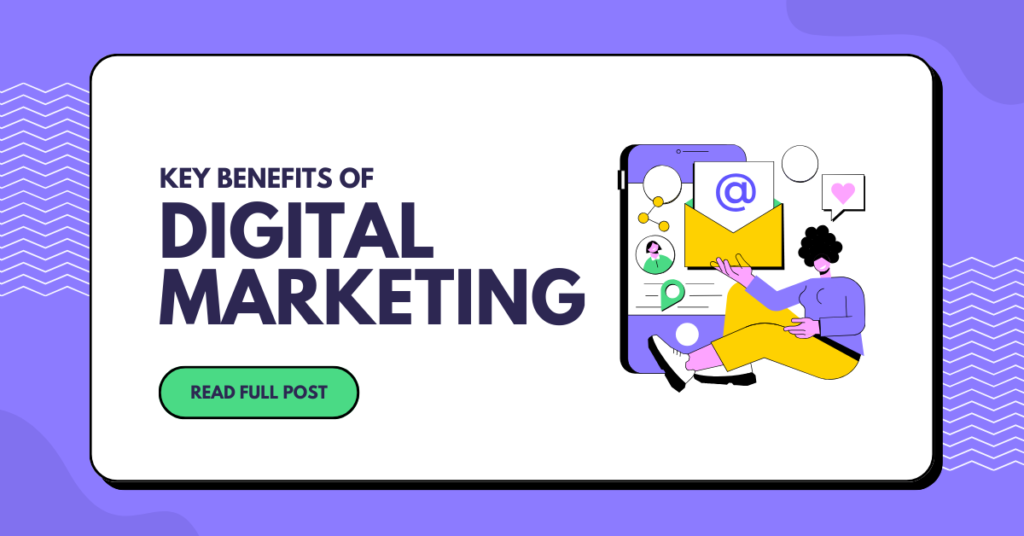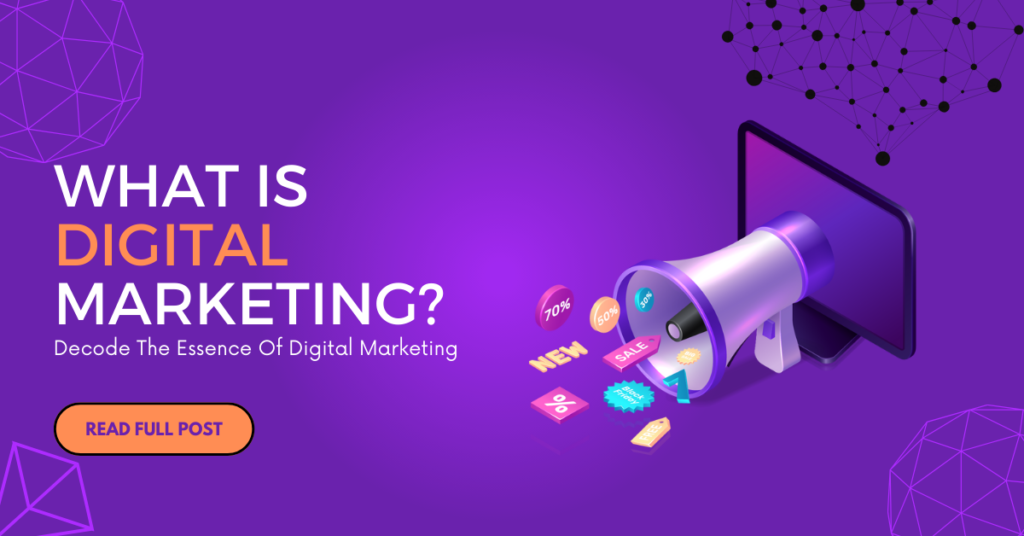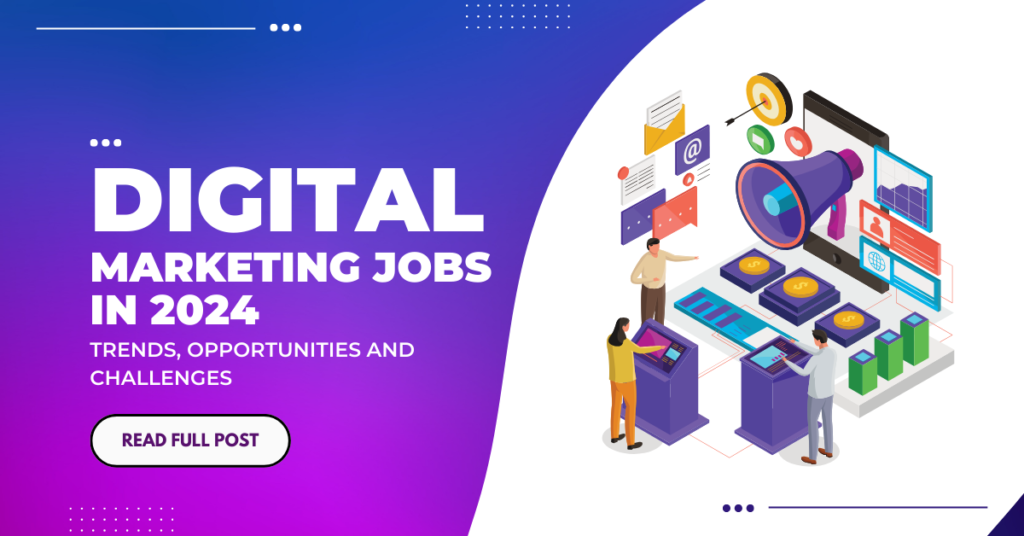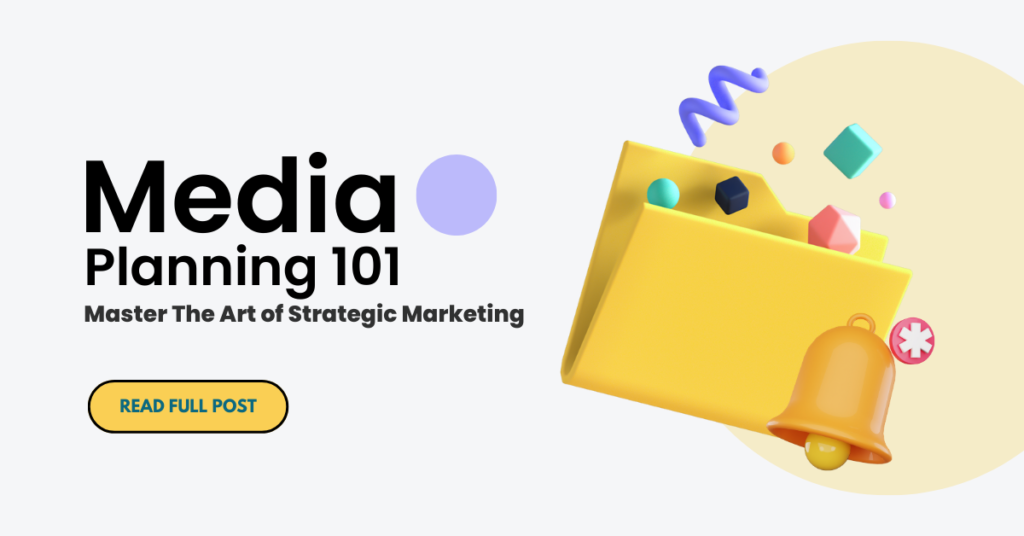If you are looking to unleash the power of digital marketing and to know the key benefits of digital marketing, then your search ends here. In the ever-evolving field of business, the transition from traditional to digital marketing has become not just a strategic move but a fundamental necessity. Digital marketing, a term that encompasses a myriad of online strategies and tactics, has redefined the way businesses connect with their audiences. In this blog post, we embark on a journey to explore the key benefits that digital marketing brings to the table, propelling businesses into the realms of unprecedented growth and success.
Table of Contents
Introduction
Brief Definition of Dgital Marketing
Digital marketing is a collective term for all online efforts aimed at promoting products or services. Unlike traditional marketing, which relies on physical mediums such as print or television, digital marketing leverages digital channels such as search engines, social media, email, and websites to connect with current and potential customers.
Importance of Digital Marketing in Modern Business Scenario
In an age where consumers are more digitally connected than ever, the importance of digital marketing cannot be underestimated. Traditional marketing methods, although still relevant, fall short in reaching the vast and diverse audiences that exist in the online space. Digital marketing acts as the bridge that connects businesses with their target consumers in a personalized, real-time, and globally accessible way.
Digital marketing provides a level playing field for businesses of all sizes, allowing startups to compete with industry giants on the digital platform. It facilitates targeted communications, ensuring that marketing efforts are directed towards the right demographics, increasing the efficiency and impact of campaigns.
Top 7 Key Benefits of Digital Marketing
This blog post is a comprehensive exploration of the benefits of adopting digital marketing strategies. We will focus on the following key aspects:
- Advanced Targeting and Personalization
- Cost-effectiveness and ROI
- Global Reach and 24/7 Access
- Analytics and data-driven Insights
- Flexibility and real time engagement
- Better conversion rates
- Building brand loyalty and Authority
Through this exploration, we aim to provide businesses with insights and actionable strategies to leverage the full potential of digital marketing for sustainable growth.
As we move through each section, we’ll illustrate the practical implications of these benefits through real-world examples, case studies, and actionable tips. By the end of this journey, it is our goal that businesses, regardless of their size or industry, will gain a deeper understanding of the transformative power that exists in digital marketing and will be inspired to integrate these strategies into their broader business plans.
Advanced Targeting and Personalization
In the dynamic world of digital marketing, accuracy is paramount. The ability to reach the right audience with the right message at the right time defines the essence of advanced targeting and personalization, which is central to successful digital campaigns.
Demographic Targeting
Digital marketing allows businesses to refine their approach by tailoring campaigns to specific demographic groups. Unlike traditional methods where messages are broadcast broadly, digital platforms enable advertisers to zoom in on age, gender, location and other key demographic factors. This targeted approach ensures that promotional efforts connect more deeply with the intended audience.
For example, a skincare brand may tailor its advertisements to address the unique concerns of different age groups, delivering personalized messages that speak directly to the needs of teenagers, young adults, or mature consumers.
Behavioural Targeting
Understanding consumer behavior is a game-changer in digital marketing. Behavioral targeting involves analyzing online activities – such as website visits, search queries and social media interactions – to build a detailed profile of a user’s preferences and interests. Armed with this information, businesses can serve highly relevant content and advertising.
Consider an e-commerce platform that employs behavioural targeting to recommend products based on a user’s past purchases or browsing history. This not only enhances the users’ experience by presenting items tailored to their interests but also increases the chances of conversion.
Personalised Content and User Experience
The era of one-size-fits-all marketing is long gone. Digital marketing allows businesses to create personalized content that resonates with individual users. From customized email campaigns that address specific consumer preferences to personalized website experiences tailored to user behavior, businesses can build deeper connections with their audiences.
For example, streaming services take advantage of personalized content recommendations based on a user’s viewing history, ensuring that each user’s homepage is a curated selection of movies and shows that suit their tastes.
In short, advanced targeting and personalization in digital marketing go beyond reaching the masses – they speak directly to the individual. By leveraging demographic and behavioral insights, businesses can create campaigns that not only capture attention but also resonate on a personal level. This level of precision not only improves engagement but also lays the foundation for lasting customer relationships.
Cost-Effectiveness and High ROI
In the fast-paced world of business, efficiency isn’t just a goal – it’s a necessity. Digital marketing has emerged as an epitome of cost-effectiveness, providing unparalleled return on investment (ROI) to businesses. In this section, we will discuss about the financial benefits that digital marketing brings.
Comparison with Traditional Marketing Costs
An important advantage of digital marketing lies in its cost-effectiveness compared to traditional marketing methods. Traditional avenues such as television advertising, print advertising and billboards often demand substantial budgets, making them less accessible to small businesses. Digital marketing, on the other hand, offers a more level playing field, allowing businesses of all sizes to connect with their audiences without breaking the bank.
Consider the cost of printing and distributing thousands of brochures compared to running a targeted online advertising campaign. The latter not only reduces upfront costs but enables businesses to allocate resources more efficiently, maximizing the impact of every marketing dollar spent.
Examples of Cost-Effective Digital Marketing Strategies
The digital landscape is filled with cost-effective strategies that deliver impressive results. Social media marketing, content marketing, and search engine optimization (SEO) are prime examples of approaches that provide substantial ROI without a hefty price tag.
Social media platforms provide businesses with a direct line to their audiences, enabling them to share content, engage in conversations, and run targeted advertising campaigns at a fraction of the cost of traditional advertising.
Content marketing, focused on creating valuable and relevant content, not only establishes a brand as an industry authority, but also drives organic traffic to websites, increasing the impact of marketing efforts.
SEO, the art of optimizing online content for search engines, increases a brand’s visibility without the need for paid advertising. By achieving higher rankings in search results, businesses can attract organic traffic and increase the likelihood of conversion.
Return on Investment (ROI) Potential in Digital Marketing Campaigns
The appeal of digital marketing stems from its ability to be measured. Unlike traditional methods where measuring success can be challenging, digital campaigns provide detailed analytics and metrics to assess performance.
Businesses can track the effectiveness of their campaigns in real time, measuring key performance indicators such as website traffic, conversion rates and engagement levels. This data not only provides valuable insights but also empowers businesses to refine and optimize their strategies for maximum impact.
Consider an email marketing campaign that allows businesses to track open rates, click-through rates, and conversion rates. Armed with this information, marketers can tweak their approach, refine content, and target specific audiences, all of which contributes to higher ROI.
In the ever-evolving landscape of business, where every penny counts, digital marketing stands as a symbol of financial prudence. Cost-effectiveness and the potential for high ROI make it a strategic imperative for businesses that want to not just survive but thrive in the digital age.
Global Reach and 24/7 Access
In the age of digital technology, the entire world serves as your market. Digital marketing breaks down geographical barriers, giving businesses unprecedented global reach and ensuring 24/7 accessibility. Let’s learn how this broader reach changes the way businesses connect with audiences around the world.
Breaking Geographical Barriers
Digital marketing overcomes the barriers of traditional geographical boundaries. Unlike brick-and-mortar establishments, businesses operating in the digital sphere can cross borders, reaching audiences in far-flung corners of the world. Whether you’re a small startup or an established enterprise, the ability to connect with a global audience opens up avenues of growth that were once unimaginable.
Consider an e-commerce store that ships handmade crafts. Through strategic digital marketing, businesses can showcase their products to customers around the world, free from the limitations of a physical storefront and tap into diverse markets with different tastes and preferences.
24/7 Access and Availability
The Internet never stops, and neither does your digital storefront. Digital marketing ensures that your business is accessible 24/7, meeting the needs of consumers in different time zones. Whether it’s browsing a website, engaging with social media content, or making an online purchase, customers have the flexibility to interact with businesses at their convenience.
This continuous access is especially impressive for businesses that offer e-commerce, subscription services, or real-time support. A customer around the world can make a purchase or seek assistance at any time, fostering a seamless and continuous connection between businesses and their global customers.
Case Studies Showcasing Successful Global Digital Campaigns
The proof of the pudding is in the eating. Let’s look at case studies that illustrate the success of global digital campaigns. From multinational corporations to innovative startups, businesses have harnessed the power of digital marketing to make a significant impact on a global scale.
- Nike’s Global Social Media Dominance: Nike, a leader in the athletic apparel industry, leverages social media platforms to connect with its diverse customer base on a global scale. Through localized content, culturally resonant campaigns, and strategic influencer partnerships, Nike maintains a strong and consistent global presence.
- Airbnb’s personalized global approach: Airbnb employs digital marketing strategies that adapt to the cultural nuances of different regions. From customized website content to region-specific promotions, Airbnb’s approach ensures that its platform remains relevant and attractive to users around the world.
Analytics and Data-Driven Insights
The heartbeat of digital marketing lies in data – invaluable insights that drive informed decision making and campaign success. Let’s explore the vital role of analytics and data-driven insights in shaping effective digital marketing strategies.
Importance of Data in Digital Marketing
Data is the backbone of digital marketing. Every click, interaction and engagement leaves a trail of information that, when used correctly, provides a deeper understanding of consumer behavior. This data-driven approach allows businesses to move beyond assumptions and make strategic decisions based on solid evidence.
Analytical Tools for Tracking and Measuring Campaign Performance
A plethora of analytics tools empower businesses to track and measure the performance of their digital marketing campaigns. Google Analytics, Facebook Insights, and other platforms provide a variety of metrics, including website traffic, user demographics, and conversion rates. These tools provide a comprehensive view of campaign effectiveness, helping marketers identify strengths, weaknesses, and areas for improvement.
Using Insights for Continuous Improvement
The beauty of data lies in its ability to inform and guide. Digital marketing is not a one-time endeavor; It is an iterative process based on continuous improvement. By analyzing data-driven insights, businesses can optimize their strategies in real-time, optimizing campaigns for better performance.
Consider an e-commerce platform that notices an increase in traffic but a drop in conversion rates during a particular period of time. Through data analysis, the business identifies bottlenecks in the checkout process. By solving this problem immediately, the platform enhances the user experience and, as a result, improves conversion rates.
Flexibility and Real-Time Engagement
In a fast-paced digital landscape, flexibility is not just a virtue – it is a strategic imperative. Digital marketing empowers businesses to market with agility and connect with their audiences in real time. Let’s learn how this adaptability promotes success in the dynamic world of online marketing.
Adapting to Market Changes
Change is the only constant, especially in the world of business. Digital marketing allows businesses to adapt quickly to market changes. Whether it’s adjusting strategies based on emerging trends or taking action in response to changes in consumer behavior, the digital sphere allows for agile and proactive decision making.
Consider a tech company that keeps track of industry trends. Through digital channels, they can respond quickly to changes in customer preferences or advances in technology, ensuring that their marketing messages remain relevant and relevant.
Real-Time Customer Engagement Through Social Media
Social media is the heartbeat of real-time engagement. Digital marketing enables businesses to instantly connect with their audiences, fostering a sense of community and brand loyalty. Social media platforms serve as dynamic spaces for interaction, feedback, and direct interaction with customers.
For example, a clothing brand leveraging social media can respond to customer inquiries, showcase new products and even run impromptu contests or promotions – all in real time. This direct engagement not only strengthens the brand-customer relationship but also adds a human touch to the digital experience.
Examples of Successful Agile Digital Marketing Strategies
Agility in digital marketing is not just a concept; This is a practice adopted by successful businesses. Consider the following examples:
- Oreo’s timely social media post: During the 2013 Super Bowl blackout, Oreo took advantage of the moment with a real-time tweet: “Facing a power outage? No worries. You still don’t want to be plunged into darkness.” can enjoy.” This quick and adaptive response attracted widespread attention, highlighting the brand’s ability to take advantage of unexpected opportunities.
- Netflix’s Adaptive Content Strategy: Netflix constantly adapts its content strategy based on user behavior and preferences. By analyzing audience data, they customize content recommendations, creating a personalized and engaging experience for each user.
Better Conversion Rates
In the digital realm, the journey from visitor to customer is a carefully orchestrated dance. Digital marketing provides a toolkit for increasing conversion rates, turning casual browsers into dedicated customers.
Optimizing Landing Pages
Landing pages act as digital storefronts, and optimizing them is paramount. Digital marketing allows businesses to refine and test landing pages for maximum impact. From compelling copy and eye-catching visuals to user-friendly layouts, every element can be fine-tuned to seamlessly guide visitors towards conversion.
Consider an online course platform customizing your landing page for a new course. By analyzing user behavior and feedback, they can adjust page layouts, highlight key benefits and streamline the registration process while ensuring high conversion rates.
Call-to-Action Strategies
A call to action (CTA) is the bridge between engagement and conversion. Digital marketing enables businesses to create engaging CTAs that motivate users to take the desired action. Whether it’s making a purchase, signing up for a newsletter, or downloading a resource, strategic CTAs guide users through the conversion funnel.
An e-commerce site may use CTAs such as “Shop Now” or “Limited-Time Offer” strategically placed throughout the website to encourage users to make an immediate purchasing decision.
A/B Testing for Continuous Improvement
Digital marketing adopts the scientific method through A/B testing. This practice involves creating variations of a webpage or campaign element to determine which one performs better. By systematically testing different headlines, visuals or CTAs, businesses can identify the most effective strategies for improving conversion rates.
For example, an email marketing campaign can A/B test subject lines to understand which subject line resonates more with the audience, leading to higher open rates and, as a result, better conversions.
Building Brand Loyalty and Authority
In the vast digital landscape, building brand loyalty and authority is an ongoing journey. Digital marketing provides a platform to not only connect with customers but also to establish a brand as a credible and authoritative presence.
Social Media Presence and Engagement
Social media is more than a marketing tool; It’s a dynamic place to build relationships. Through consistent presence, active engagement, and meaningful interactions, businesses can build a loyal community of followers.
Consider a fitness brand that shares workout tips, success stories and connects with its audience through comments and direct messages on social media. This constant engagement creates a sense of community and loyalty among fitness enthusiasts.
Content Marketing for Brand Building
Content is the cornerstone of digital brand building. Through blogs, videos, podcasts and other content formats, businesses can showcase their expertise, share valuable insights and connect with their audiences on a deeper level.
For example, a tech company might publish in-depth articles on industry trends, host webinars featuring experts, and create informative videos that not only establish them as authorities in their field but Also provides real value to their audience.
Establishing Authority through Thought Leadership.
Digital marketing allows businesses to establish themselves as thought leaders in their industry. By sharing original research, contributing to industry conversations, and participating in relevant forums, businesses can establish authority and credibility.
Imagine a marketing agency that regularly publishes insightful whitepapers, conducts webinars on emerging trends and actively participates in industry conferences. This thought leadership not only enhances their brand reputation but also attracts clients seeking expertise in the digital marketing landscape.
Case Studies and Success Stories
In the field of digital marketing, success is not just theoretical – it is tangible, measurable, and impactful. Let’s explore real-world case studies and success stories that show how businesses across a variety of industries have harnessed the power of digital marketing to achieve remarkable results.
To Showcase Real-World Examples of Businesses That Can Benefit From Digital Marketing
- Case Study: AirAsia’s Digital Transformation
- Background: Low-cost airline AirAsia faced stiff competition in the aviation industry. To stand out and move ahead, they adopted digital marketing as a core strategy.
- Digital approach: AirAsia leveraged social media, online promotion and targeted advertising to reach a wider audience. They introduced a user-friendly mobile app that enables customers to book flights, receive personalized offers, and engage with the brand seamlessly.
- Results: The airline experienced a significant increase in online bookings, improved customer engagement and a stronger brand presence. Their agile approach towards digital marketing not only increased sales but also established them as a customer-centric and innovative brand.
Highlighting Different Industries and Their Success with Digital Strategies
- Success in E-Commerce: Amazon’s Personalization Ability
- Background: Amazon, the global e-commerce giant, constantly refines its digital marketing strategies to meet diverse customer preferences.
- Digital approach: Through advanced algorithms and data analytics, Amazon provides personalized product recommendations, targeted advertisements, and a seamless online shopping experience. They leverage customer data to optimize promotions and discounts, maximizing the impact of their marketing efforts.
- The result: Amazon’s commitment to personalization has led to increased customer loyalty, higher conversion rates, and a dominant position in the competitive e-commerce landscape.
- Success in Healthcare: Mayo Clinic’s Thought Leadership
- Background: Mayo Clinic, a renowned healthcare organization, adopted digital marketing to share medical expertise and build trust.
- Digital approach: Mayo Clinic invested in content marketing, producing informational articles, videos, and podcasts that addressed common health concerns. They used social media platforms to disseminate official health information and connect with global audiences.
- The result: The digital strategy established Mayo Clinic as a trusted source of medical information, attracting a broad audience and fostering a sense of community around health and wellness.
Challenges and Solutions
Challenges are inevitable in the dynamic world of digital marketing, but so are solutions. Let’s tackle the common challenges faced by businesses in the digital sphere and explore effective solutions and best practices.
Addressing Common Challenges in Digital Marketing
- Challenge: Information overload and competition
- Solution: Reduce the noise by creating targeted, high-quality content. Focus on providing value, solving problems, and building authentic connections with your audience.
- Challenge: Adapting to algorithm changes
- Solution: Stay informed and smart. Regularly update your digital strategy based on algorithm changes, trends, and consumer behavior. Diversify your marketing channels to reduce dependence on a single platform.
Providing Solutions and Best Practices
- Best Practice: Customer-Centric Approach
- Solution: Stay informed and smart. Regularly update your digital strategy based on algorithm changes, trends, and consumer behavior. Diversify your marketing channels to reduce dependence on a single platform.
- Best Practice: Data Security and Privacy Compliance
- Solution: Invest in strong cyber security measures and ensure compliance with data protection regulations. Transparently communicate your commitment to data privacy to build trust with your audience.
Emphasizing the Need for Adaptability and Continuous Learning
Adaptability is the cornerstone of digital marketing success. The landscape is rapidly evolving, and businesses must adopt a mindset of continuous learning. Stay up to date on industry trends, attend conferences and invest in training to equip your team with the latest skills and knowledge.
Conclusion
- Summary of Key Benefits of Digital Marketing
- In the grand symphony of business, digital marketing emerges as a conductor that heralds success through advanced targeting, global reach and real-time engagement. Advantages are not just concepts but proven strategies that transform businesses from a variety of industries.
- Encouraging businesses to leverage digital strategies for growth
- The digital platform is ready, and businesses are focused on taking advantage of the opportunities offered by digital marketing. Embrace the power of accuracy, adaptability and customer-centricity to take your business to new heights.
- A call-to-action for readers to explore digital marketing for their businesses
- For the visionary business leaders and aspiring entrepreneurs reading this, the time is now. Explore the vast landscape of digital marketing, uncover strategies that match your brand, and embark on a journey of growth and success. Whether you’re a startup, a seasoned enterprise, or somewhere in between, the power of digital marketing is waiting for you to discover.
Let this be a catalyst for change as we finish exploring the key digital marketing benefits. Unleash the power of digital marketing, not just as a strategy but as a transformational force that lifts your business into the future. The digital stage is yours – step into it with confidence, creativity and a commitment to continuous innovation.





